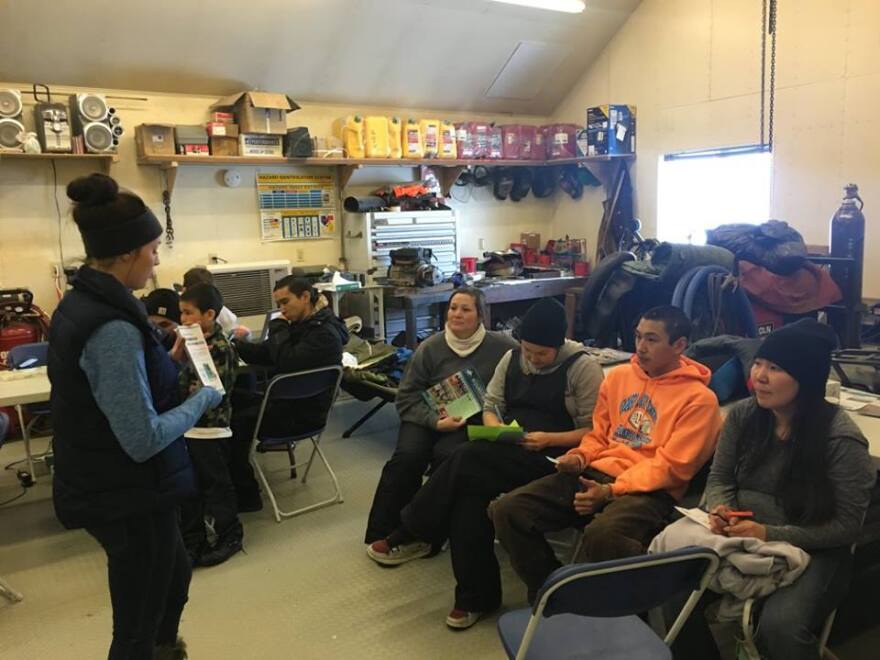Last year, as part of a judicial clerkship in Alaska, Western Michigan University Philosophy Professor Fritz Alhoff volunteered for a program through the Alaskan Business Development Center. The task: to head to a tiny Alaskan village and prepare tax returns for hunters, fishermen and Native Alaska, many of whom miss out on thousands of dollars in refunds. Allhoff loved it so much that this year, he formed a partnership and recently took four WMU accounting students to the Last Frontier. Allhoff talked with WMUK about the trip and the partnership.
Allhoff says when he first headed to these small, remote villages, he didn't know what to expect. But as soon as he walked inside a villager's house, his perspective completely shifted.
"So surprisingly, a large number of the villagers use Turbotax," he laughs. "Before we go out there, we think these are isolated and off-the-grid. Most of the villagers don't have running water. But a lot of them have internet. Through, of course, satellite, right? You see Dish Network is very popular in these rural villages."

He continues: "It's interesting, you don't want to go there with these preconceptions, but of course, you have them. And then you're disabused of them quickly when you see internet. You see everyboy on Facebook, Gmail, Skype. And those are really important to the villagers because the other village might only be five miles away, but there's no cars. Everything is off the road system...A lot of these technologies play an important role with them staying in touch with each other."
Allhoff says he and his team of students were only in these villages for a few weeks, but it was packed with work. Multiple ten-hours days, he says, that ultimately led to the team preparing 400 sets of tax returns. And Allhoff says the finances of the Native villagers here, who largely live off the land, look vastly different than a normal, 9 to 5 worker.
"There are some stores up there, or people work for the tribal associations. So you have W-2 forms, just like you would have down here. Most of it is part-time work. You have teachers in the schools. I think the biggest difference is Alaska has something called the Permanent Fund Dividend, where every Alaskan resident every year gets about $2,000. It's based on an endowment from the oil, and the interest that is born from that endowment. Also, there's tax relief for children. There's the Earned Income credit and the child tax credit. So it's not exaggerating to say that most of the income from most of these families in unearned income, in that it comes from the State of Alaska through the P.F.D., or from having kids. And there are a lot of kids!"

Allhoff isn't an accounting professor. He teaches philosophy. But he was drawn into this program because of the opportunity to explore these remote places. Allhoff says he also saw the need for it in these villages, as well, so he's trying to expand the program at Western Michigan University in the future.
"Moving forward, I'd like to grow that number (of four students) to as many as we can find support for," he says. "So that's sort of my goal for the future."




